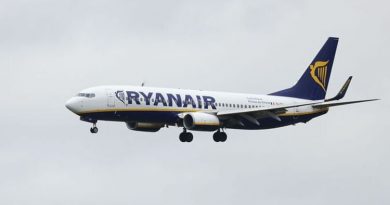When inspiration strikes, be ready to put it to use: Travel Weekly
I have an almost photographic memory of things that I see, read and hear. I have found numerous times over the years that seemingly unrelated events, idly swimming in the nooks and crannies of my frontal lobe, suddenly coalesce and a bubble pops up for an “aha” moment.
These “ahas” are actually clues for running my business.
Sometimes it works out, and sometimes it doesn’t because you don’t have the resources to apply your insights. For example, I happened to notice that a retailer in a faraway city, one smaller than the one I lived in at the time, suddenly blew by us in bookings and was well on its way to being the largest cruise retailer in the U.S. More than that, the online pricing on their website appeared current and accurate enough that it was less time-consuming to go to check pricing than to check pricing with the supplier and possibly endure long hold times.
I was stumped by how they could keep that website so up to date. I even had a friend go to the building where the agency was located and count the cars in their parking lot. There weren’t enough cars to account for a staff of programmers, let alone its sales and administration staff.
A year or so later, at the inauguration of a new ship, I ran into someone from the cruise line’s IT department. Several adult beverages later, I got it out of him that Sequel 7 data feeds updated the agency in question’s servers every night.
“Does your company ever share those data feeds with other retailers?” I asked.
“We do, with those that can use them.”
Although that mystery was solved, I couldn’t really spare the time from day-to-day activities to commission servers and write code without cutting a couple of inches off the bottom of my office door to slide a pizza in every once in a while. And we didn’t have the capital to pay someone to do the work for us, so even though we knew what we could do, we were still dead in the water.
Other times it works out just fine. Why, I wondered, was a cruise company acquiring a line that owned another brand that was a toe-to-toe competitor? I thought of one way it could work and, at a conference cocktail party, approached an executive who worked for the buyer. “I am baffled by this acquisition,” I said. “The only way I can see this working is if Brand A takes the top third of the mass market and the bottom third of the premium market, and Brand B takes the upper two-thirds of the premium market.”
I could see the blood drain from his face. I had nailed it. We rewrote our marketing plans for the two brands and were able to secure thousands of co-op dollars due to what my perception of the market split was going to be.
Today, as part of my consulting work, I read voraciously and harvest bits and pieces from all over the world that assist in formulating thoughts about where the cruise industry will be nine months from now.
For instance, late last month, Princess’ Coral Princess, sailing in Australia, experienced a Covid-19 outbreak that infected about 10% of its guests, halfway through a 28-day cruise. The situation was quickly under control, and the story did not get wide media attention.
My takeaway: I didn’t need to rewrite marketing plans with a strong contingency for business fall-off like we saw in 2020. Even a significant Covid outbreak aboard a cruise ship was no longer big news.
It’s like this: Staying current on things that may not seem to affect your corner of the world can oftentimes put you in a position to shape and adjust business models and plans to your advantage.
Source: Read Full Article




